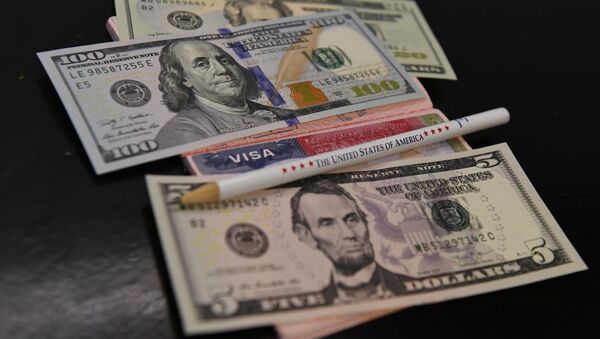Due to the temporary change in visa norms for foreign workers in the United States, Indian students planning to study in US seem to be giving up on their desire to fulfil their 'American Dream'. The changes in visa norms are valid through the end of 2020.
Indian education counsellors tell Sputnik that the decision has played with the minds of students and their parents, who have reconsidered the option of studying abroad. The counsellors have emphasised the need to get proper advice and to avoid making decisions in a hurry.
"Over 48-52 percent of students have changed their decision to study in the US. One of the major concerns they have is about whether they will be able to secure a job in the US after graduation," Geeta Jain, who is a career counsellor and founder of Mediconation Educational Consultancy, told Sputnik.
United States President Donald Trump on 23 June signed a sweeping executive order that temporarily suspended the issuance of a variety of visas, including the H-1B. The US issues nearly 85,000 H-1B visas per year, out of which nearly 60,000 are obtained by Indians, making them among the best-educated and highest-earning foreign diaspora groups in the US.
This uncertainty has raised concerns among students enrolled in OPT (Optional Practical Training) programmes, who are obtaining STEM (science, technology, engineering and mathematics) degrees in the US on student work visas. The OPT is offered to students graduating from STEM programmes for a total of three years. It allows them to work in US after graduation.
The OPT is an extension of the F-1 visa (student visa) and is considered as a ticket to upgrading a F-1 student visa to H-1B - students can be considered for H-1B visas after completing OPT programmes if they are currently in the US.
"It is important to have clarity upon the fact that students currently enrolled in the F-1 visa and who are in their OPT period, applying to move to H-1B status, are exempted from the new H-1B visa rule. The ban is for people outside the USA seeking to immigrate through the H-1B path," said Geeta Jain.
Career Counsellor Gaurav Tyagi, Founder of Career Xpert, voices a similar viewpoint, mentioning that students who are already studying in parts of the US are worried about their job opportunities.
"A change in H-1B visa norms will not affect the student much because those who are in their final year will be doing their OPT and ones who would be graduating after one year or two years will not suffer, as the visa suspension will last only till the end of this year," Tyagi said.
The total number of Indian students pursuing higher education in the United States has been growing for the past six years; Indians now account for 18 percent of all international students in the country.
According to data cited by the US Embassy and Consulates in India, the number of Indian students in the United States recently surpassed 200,000 for the first time, increasing by almost three percent over the last year (2018) to 202,014 in 2019.
The impact of the decision will be felt in the Indian and US economies, because revenues from foreign students comprise a significant chunk of the US economy.
The 1.1 million foreign students pursuing a higher education in the country contribute $44.7 billion to the US economy, the State Department and the Institute of International Education (IIE) have stated. While China remains the highest contributor, it is followed by India and Saudi Arabia.
Meanwhile, reacting to the US' move, which comes during an election year amid the economic downturn caused by COVID-19, the Indian government has expressed dismay over the decision.
"This is likely to affect the movement of Indian skilled professionals who avail of these non-immigrant visa programmes to work lawfully in the US. We are assessing the impact of the order on Indian nationals and industry in consultation with stakeholders," Indian Ministry of External Affairs Spokesperson Anurag Srivastava said.


